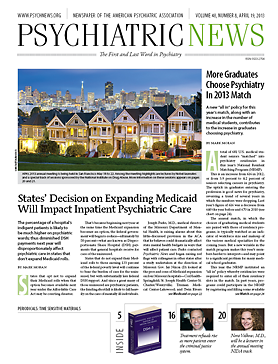When it comes to protecting the public from the side effects and toxicities of dietary supplements, the Food and Drug Administration’s (FDA) current adverse-event reporting system is missing a substantial chunk of the complaints that consumers have registered, according to a Government Accountability Office (GAO) report released March 18.
Dietary supplements, which include vitamins, minerals, and herbal products, constitute a $30-billion annual business in the United States, and the demand for these products is increasing, according to 2011 estimates published by Nutrition Business Journal. The FDA estimated that about 55,000 dietary supplement products were on the market in 2009.
Dietary supplements are primarily regulated by the FDA’s Center for Food Safety and Applied Nutrition (CFSAN), and the agency’s total regulatory activities in this area, ranging from inspections to safety surveillance, had a budget of $18.9 million in 2012, the GAO noted.
Unlike prescription drugs, however, dietary supplements can be marketed without the manufacturer having to prove their efficacy and safety. The burden of proof is on the FDA to demonstrate that a product is unsafe or harmful before actions can be taken. To date, one herbal ingredient, ephedrine alkaloids, which was used in weight-loss supplements, has been banned because of its link to several deaths.
For less-grave risks, the FDA can issue warning letters, seek court injunctions, block importation, or issue recalls for supplement products that fail inspections, contain adulterated ingredients, or pose other safety risks. In 2011, the agency issued about 90 warning letters related to dietary supplements and 30 voluntary-recall requests.
If consumers suffer adverse effects from a dietary supplement, they can report the problem directly to the FDA’s MedWatch program, an online reporting portal (see URL at end of article). These reports are then transferred to CFSAN for evaluation. Consumers can also file a complaint with a local FDA field office or with the supplement’s manufacturer or distributor, whose telephone number is required on the package. Starting in 2008, manufacturers or distributors were required to submit adverse-event reports to the FDA if the event is deemed serious. If the event is not considered serious, the manufacturer is not obligated but can voluntarily report it.
(The FDA defines a serious event as one that results “in a death, life-threatening experience, inpatient hospitalization, or birth defect or…require[s] a medical or surgical intervention to prevent the above-cited serious outcomes.”)
From 2008 to 2011, the FDA received 6,307 adverse-event reports for dietary supplements, 71 percent of which came from the industry, reported as serious adverse events, according to the GAO audit. The GAO also found that from 2008 to 2010, 57 U.S. poison centers received 4,863 calls about adverse events related to dietary supplements, which was about 1,000 more reports than the FDA received in the same three-year period. These reports were generally not shared with the FDA, the GAO found.
Although the GAO recommends that the FDA obtain comprehensive adverse-event data from poison centers, CFSAN officials told the GAO that purchasing poison-center data would be cost prohibitive, as the CFSAN annual budget for adverse-event surveillance is about $400,000, far less than the price poison centers want to charge for the data.
Underreporting of adverse events is a constant concern. The GAO report cited reasons for underreporting supplement-related adverse events, in particular that “consumers, health care professionals, and others may not recognize the chronic or cumulative toxic effects of a dietary supplement, or…assume dietary supplements to be safe and not attribute negative effects to them.” ■
